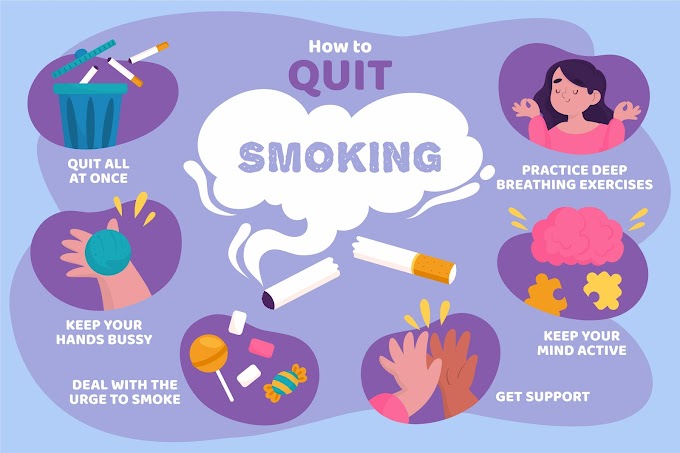There are many different ways to quit smoking, and the best approach for one person may not work for another. Some people find it helpful to use nicotine replacement therapy, such as gum or patches, to gradually wean themselves off cigarettes. Others may find success with prescription medications or alternative approaches, such as hypnosis or acupuncture. It is important to find a method that works for you and to have a support system in place to help you through the quitting process.
Quitting smoking can be challenging, but the rewards are well worth the effort. By quitting smoking, you can improve your overall health and well-being, reduce your risk of developing serious health problems, and enjoy a higher quality of life. Additionally, quitting smoking can also save you money and improve your relationships with friends and loved ones. If you are considering quitting smoking, there are many resources and support systems available to help you succeed.
Quotes For Motivation
"Smoking is one of the leading causes of death in the United States, yet people continue to smoke because they are addicted to nicotine."
"Quitting smoking is hard, but it's worth it."
Smoking is one of the leading causes of death in the world." - World Health Organization

"Smoking is one of the leading causes of death in the world, and it's completely preventable."
"Smoking is one of the leading causes of death in the world, and it's also one of the most preventable." - World Health Organization
Quitting Smoking Gradually: A Sustainable Approach
Smoking is injurious to health and there is no denying that. It is quite difficult to quit smoking but it is not impossible. It is a gradual process and one needs to be very determined to do so. There are many ways to quit smoking and one should find the one that suits them the most. There are many support groups available these days that can help people quit smoking.
Quitting smoking is not easy, but it's worth it. You'll be healthier, have more money, and smell better. The first step is admitting that you have a problem. Then, you need to come up with a plan to quit. This may mean going cold turkey, or slowly cutting back on the number of cigarettes you smoke each day. Either way, it's important to be patient and stick to your plan. There will be setbacks, but don't let them discourage you. Remember, you're doing this for yourself.
Quitting smoking is not easy, but it's worth it. The sooner you quit, the sooner your body will start to repair the damage smoking has done. Quitting smoking is a process, and it's often best to take it slowly. Here are a few tips to help you quit smoking gradually:
10 Tops Awards of Quitting Smoking
Improved health: Quitting smoking can have immediate and long-term health benefits, including reduced risk of lung cancer, heart disease, stroke, and other smoking-related illnesses.
Increased lifespan: Quitting smoking can add years to your life. Studies have shown that smokers who quit at age 35 or younger can add an average of 10 years to their life expectancy.
Better quality of life: Quitting smoking can improve your overall quality of life by reducing the risk of smoking-related health problems, such as shortness of breath, cough, and fatigue.
Better physical appearance: Quitting smoking can improve the appearance of your skin and teeth, and reduce the risk of premature wrinkles and yellowing of the teeth.
Increased energy levels: Quitting smoking can increase your energy levels, allowing you to be more active and participate in activities you may have previously been unable to do.
Improved sense of smell and taste: Quitting smoking can improve your sense of smell and taste, making food and other sensory experiences more enjoyable.
Reduced risk of cancer: Quitting smoking can reduce your risk of developing cancer, including lung, throat, mouth, pancreas, bladder, kidney, and cervix.
Improved fertility: Quitting smoking can improve fertility in both men and women, making it easier to conceive and carry a pregnancy to term.
Improved cardiovascular health: Quitting smoking can improve your cardiovascular health by reducing your risk of heart attack and stroke.
Increased financial savings: Quitting smoking can save you a significant amount of money over time, as the cost of cigarettes and related health care expenses can add up.






.jpg)